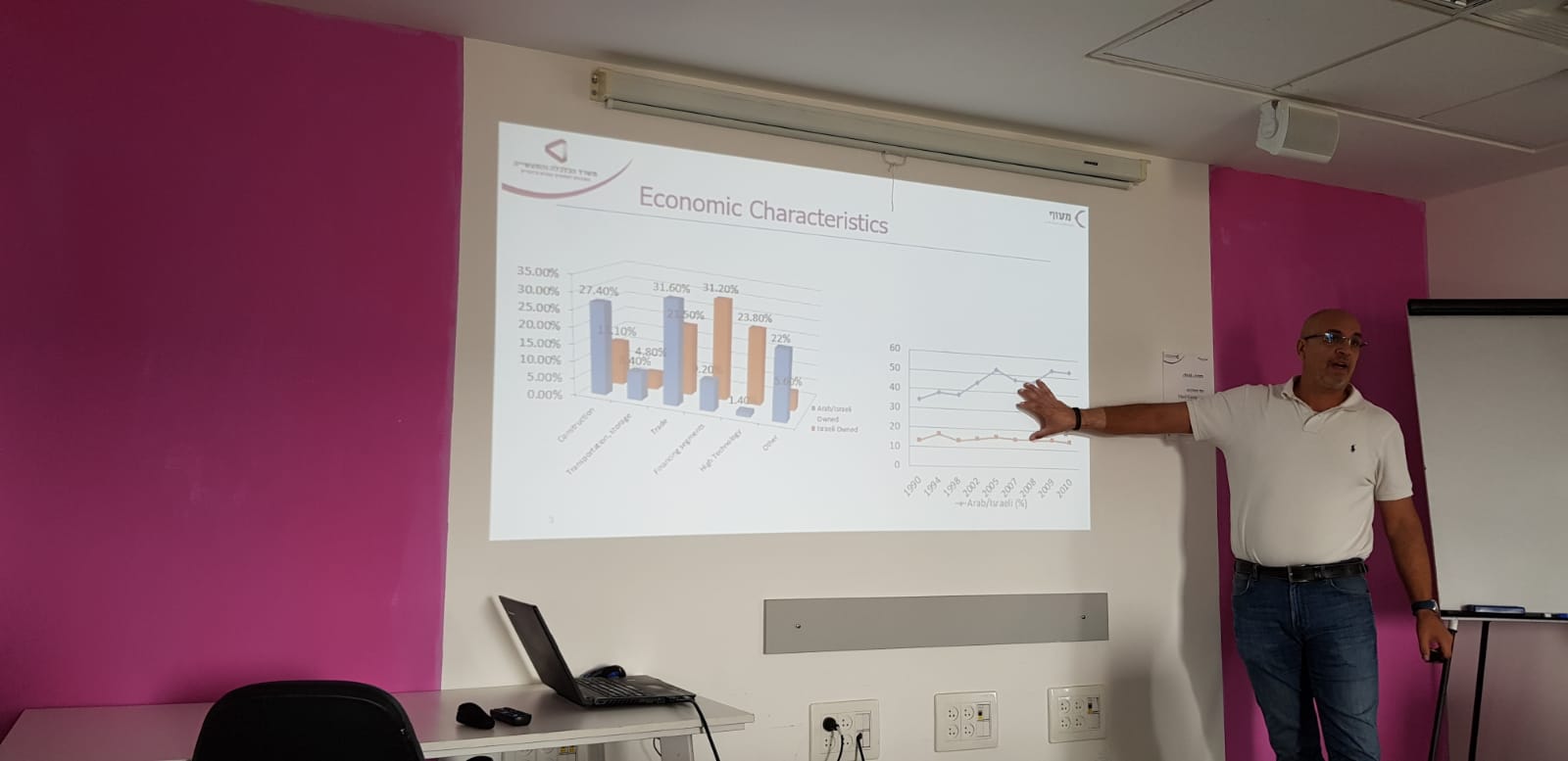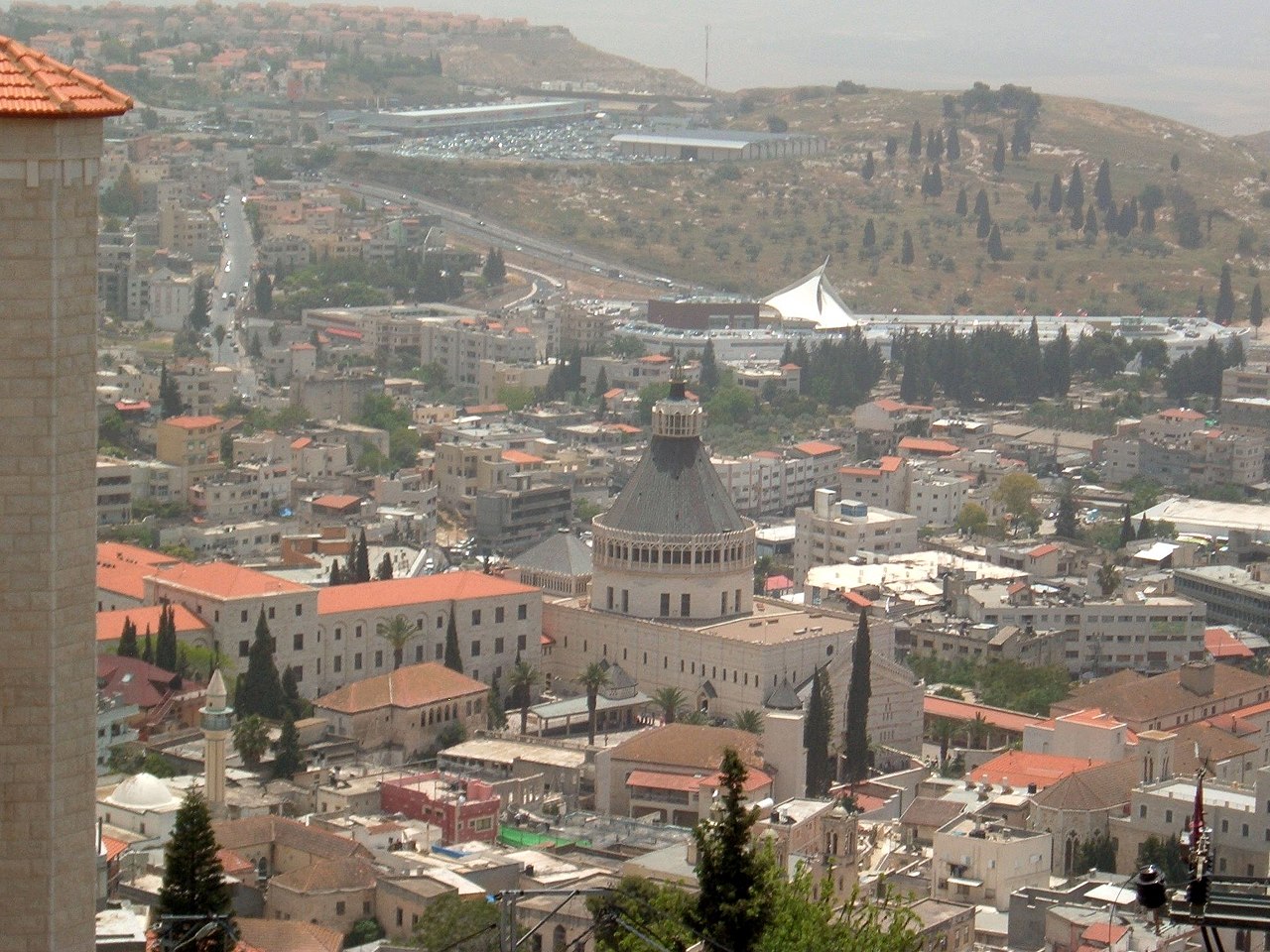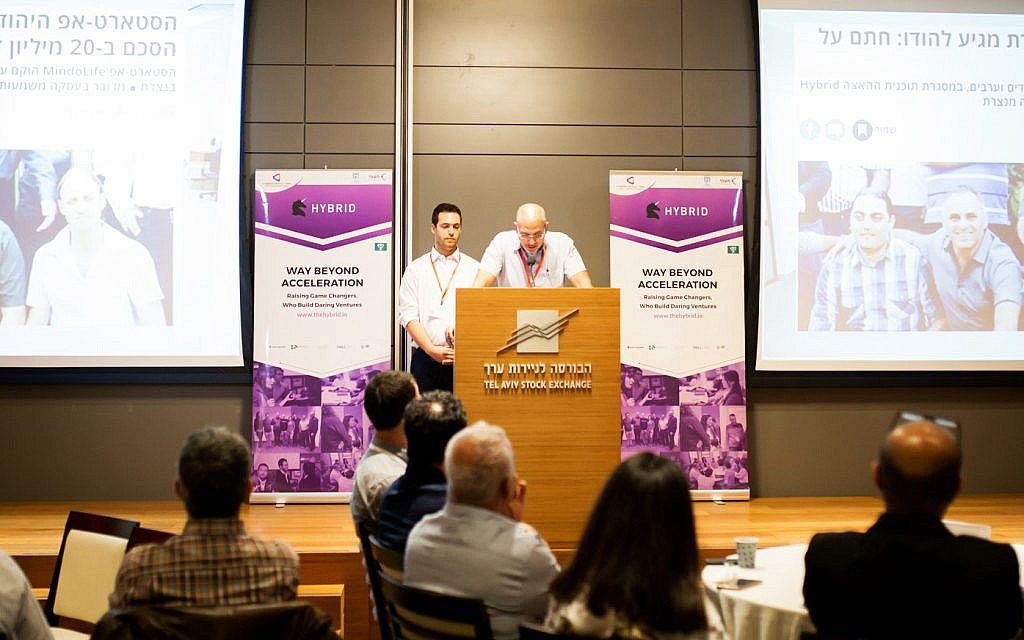Israeli-Arab seeks to build non-Jewish start-ups with top-secret help
Entrepreneur Fadi Swidan wants to turn the city of Nazareth from 'Shwarma Valley into an Israeli-Arab Silicon Valley'
An Israeli-Arab entrepreneur has drafted in veterans of the country’s ultra-secret 8200 intelligence unit to help build start-ups in the non-Jewish sector.
And Fadi Swidan has a dream to turn Nazareth, a bustling city of 77,000 from “Shwarma Valley into an Israeli-Arab Silicon Valley”.
Fadi established a business centre in the city in 2012 with government backing, to help find high-tech entrepreneurs among the Arab population. “Israeli Arabs make up around 20 percent of country’s population,” he said.
Get The Jewish News Daily Edition by email and never miss our top stories Free Sign Up
“We have thousands of engineers, researchers or doctors, but we contribute only around 8 per cent to the country’s Gross Domestic Product [GDP] – and only 0.02% of Palestinian Israelis are entrepreneurs.”
Around 2014, the Israeli government decided that it was necessary to try to equalise sectoral contribution to GDP to close the widening social-economic gaps.
According to the Organisation of Economic Co-operation and Development, Israel has one of the widest gaps between haves and have-nots among member states.

In a bid to try to close this gap, the Israeli government started paying more attention to the plight of society’s marginalised groups, the Arabs and the ultra-Orthodox.
Fadi realised that what was missing was the ability of Israeli Arabs to network into wider society.
Therefore, he approached the veterans of 8200, many of whose alumni went on to set up some of the “Startup Nations’” most famous startups, for help.
Surprisingly, they agreed. The decision was fraught with problems for both sides, said Fadi. “Arab Israelis objected to the idea because, for them, the 8200 guys represented the army, which was killing their people in Gaza and the West Bank,” said Fadi.
“On the Jewish side there were those who said, ‘why do you want to work with the Arabs? There are security issues. And anyway, why should they learn what we do, they will only be rivals’.”
While that was being sorted out, Fadi faced other problems: Israeli Arab society is not geared towards tech or entrepreneurship in general.
“Arabs want to work in big companies, such as Intel; they do not want to set up on their own. There is a huge degree of risk aversion; a stigma is attached to failure, and that impedes entrepreneurship,” said Fadi.
“It is also difficult find Israeli Arab investors into high-tech projects since they prefer to fund things that are tangible, such as real estate, rather than an idea that might or might not lead to something in an order book.”

But there have been a few success stories – Edunation, Nazdaq and Allmuze are three – and Fadi hopes that this might lead to more investment. “It’s a cycle, if something succeeds, then the venture capital comes in, leading to more success, and more capital,” he said.
One area where Israeli Arabs have an advantage over their Jewish counterparts is the possibility of exporting to the Arab world.
“At the moment, there is a holding company in the Virgin Islands with offices in Jordan, because some don’t want the Israeli connection know. But we are selling in the Arab world, and receiving grants from Arab governments. And that’s a start.”

Listen to this week’s episode of the Jewish Views Podcast:

Thank you for helping to make Jewish News the leading source of news and opinion for the UK Jewish community. Today we're asking for your invaluable help to continue putting our community first in everything we do.
For as little as £5 a month you can help sustain the vital work we do in celebrating and standing up for Jewish life in Britain.
Jewish News holds our community together and keeps us connected. Like a synagogue, it’s where people turn to feel part of something bigger. It also proudly shows the rest of Britain the vibrancy and rich culture of modern Jewish life.
You can make a quick and easy one-off or monthly contribution of £5, £10, £20 or any other sum you’re comfortable with.
100% of your donation will help us continue celebrating our community, in all its dynamic diversity...
Engaging
Being a community platform means so much more than producing a newspaper and website. One of our proudest roles is media partnering with our invaluable charities to amplify the outstanding work they do to help us all.
Celebrating
There’s no shortage of oys in the world but Jewish News takes every opportunity to celebrate the joys too, through projects like Night of Heroes, 40 Under 40 and other compelling countdowns that make the community kvell with pride.
Pioneering
In the first collaboration between media outlets from different faiths, Jewish News worked with British Muslim TV and Church Times to produce a list of young activists leading the way on interfaith understanding.
Campaigning
Royal Mail issued a stamp honouring Holocaust hero Sir Nicholas Winton after a Jewish News campaign attracted more than 100,000 backers. Jewish Newsalso produces special editions of the paper highlighting pressing issues including mental health and Holocaust remembrance.
Easy access
In an age when news is readily accessible, Jewish News provides high-quality content free online and offline, removing any financial barriers to connecting people.
Voice of our community to wider society
The Jewish News team regularly appears on TV, radio and on the pages of the national press to comment on stories about the Jewish community. Easy access to the paper on the streets of London also means Jewish News provides an invaluable window into the community for the country at large.
We hope you agree all this is worth preserving.
-
By Brigit Grant
-
By Laurent Vaughan - Senior Associate (Bishop & Sewell Solicitors)
-
By Laurent Vaughan - Senior Associate (Bishop & Sewell Solicitors)
-
By Laurent Vaughan - Senior Associate (Bishop & Sewell Solicitors)
-
By Laurent Vaughan - Senior Associate (Bishop & Sewell Solicitors)






















